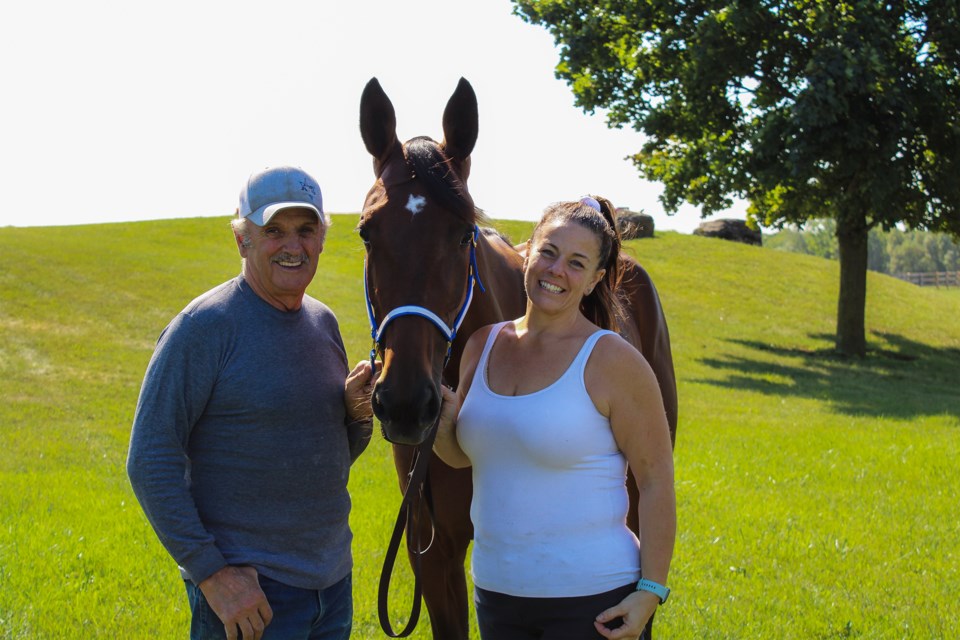PUSLINCH – A day's work is looking a little different for former home care and long-term care professional, Nicole Bourgeois-Stocker.
Bourgeois-Stocker left the health-care industry after 10 years to enter the harness racing industry as a horse caretaker. Since March, she has been working at Rick Zeron’s barn at Classy Lane Training Centre in Puslinch. Work starts at 6:30 a.m. and ends around noon or 1 p.m., depending if she has to accompany horses to a race.
"The animals, they are amazing, the connection you can get with these animals, it's amazing," said Bourgeois-Stocker about the role. "They are race horses and they work their hearts out every week for you and you try to give them the same love and care that they give back to you, because they have to trust you, right?"
Bourgeois-Stocker, who was diagnosed with depression, said it was her father, Rheal Bourgeois-Stocker, who suggested she switch industries.
"My father is a wonderful man and I look up to him highly. He did suggest, because my mental health was going down the drain a bit, he said, 'Why not go back to your first love? You could always go back to taking care of people,' which I also love, but it's a lot more stressful because of COVID," said Bourgeois-Stocker.
Growing up, Bourgeois-Stocker said her father worked in the industry and owned a stable with her mother. Now, Bourgeois-Stocker works with her father and husband Jim at Zeron's barn.
"I really took for granted how therapeutic horses are, working alongside family and being outdoors," said Bourgeois-Stocker.
Her prior experience with horses made the transition into the industry easy, said Bourgeois-Stocker. As a caretaker, she takes the horses in and out of their stalls, prepares the horses to jog or train and accompanies horses to the racetrack.
Bourgeois-Stocker notes there are similarities between the two industries, as caretakers need to be kind, compassionate and report back to the horse trainer of any behaviour changes.
“You have to love what you do and you have to be able to communicate and advocate for your client, resident or your horse,” said Bourgeois-Stocker.
While the farm oversees the care of multiple horses, Bourgeois-Stocker formed a strong bond with one of the horses named Hawaii.
"When I first started looking after her, she could be kind of nasty, like kicking and be a little dirty, and I realized she needed to trust me, and all of a sudden, we started bonding," said Bourgeois-Stocker about Hawaii. "She is such a pleasure to be around now, and when you gain that trust in that animal, it's such a good feeling."
Bourgeois-Stocker said she wished more people knew about the commitment to caring for the horses in the harness racing industry.
"People just go to the racetrack, have a good time, bet on some horses, which is amazing it's fantastic, but they don't see the behind the scenes of how we do with these horses, how much they're cared for, how much they're loved, how much work goes behind getting them to race each week," said Bourgeois-Stocker.
Prior to the pandemic, Bourgeois-Stocker was working two jobs. She said a lack of mental health support is what caused her to leave as workers were left to navigate these resources on their own.
"There's not a lot of mental support, mental health support, unfortunately as of yet. I'd like to think that it's getting better because of so many people leaving the industry, but there just weren't enough places to turn too," said Bourgeois-Stocker, noting having someone in the workplace to provide guidance through additional resources would help people like her.
"I'm sure I will be back in healthcare at some point, but right now, this is where I need to be."



